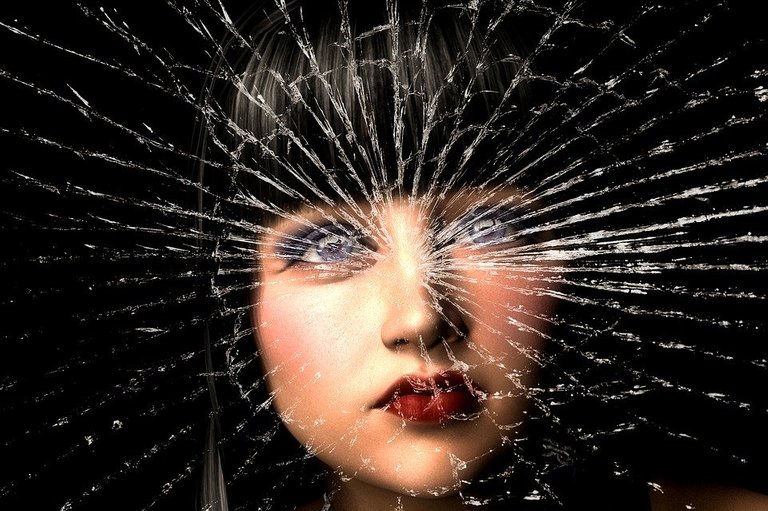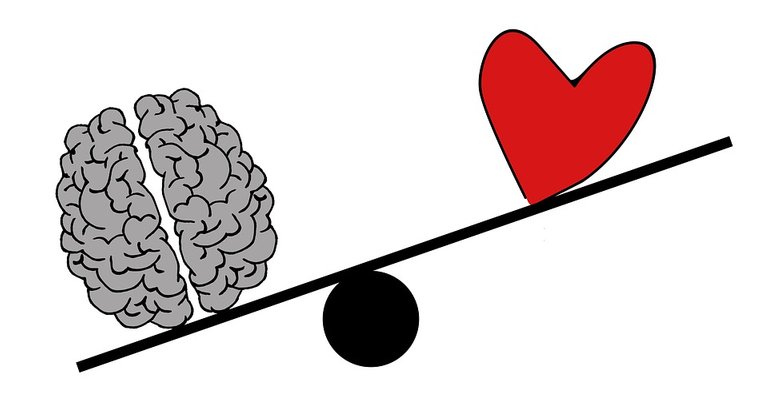
Introduction
The "Diderot Effect” is named after Denis Diderot, who was an eighteenth-century French philosopher who lived an ordinary and humble life until he had the misfortune to be gifted a beautiful scarlet dressing gown.
“What’s the misfortune about receiving a beautiful gift?” you might ask.
In his essay Regrets for my Old Dressing Gown, or A warning to those who have more taste than fortune he describes that after he brought the dressing gown home, Diderot realized that it did not fit to the way his house was decorated. So he began to buy new furniture for his home, replacing each single of his old items with new, more appropriate to his new clothing.
While buying his new items, slowly but surely Denis Diderot went into serious debt, while at the same time being extremely unhappy. Soon he started realizing his miserableness and as you might have already guessed, in his essay he says that it’s the gift to blame.
“I was the absolute master of my old robe. I have become the slave of the new one.”
What fascinates me most about his essay is the way he describes his misery and metamorphosis of his identity. In the process of buying new items he changed the sense of his identity and perception of things he enjoyed to be surrounded with. While at the same time understanding the core of his misery and realizing how happy he was before his gift, he could not stop purchasing new goods and eventually ending up in bankrupt.
All that remains of my original mediocrity is a rug of selvage. I can feel that this pitiful rug doesn’t go well with my newfound luxury. But I swore and I swear, like the peasant transferred from his hut to a palace who keeps his sabots, that Denis the philosopher will never walk upon a masterpiece of la Savonnier. When in the morning, covered in my sumptuous scarlet, I enter my office I lower my gaze and I see my old rug of selvage. It reminds me of my beginnings and pride is stopped at the entryway to my heart.

Understanding the “Diderot Effect”
Basically the “Diderot Effect” boils down to two principles:
• The things we buy must be cohesive to our sense of identity.
It doesn’t matter whether it’s a new smartphone or just another shirt, people buy stuff in order to express their identity with an item and is well aware that this item says something about themselves as a person.
• Therefore, if you buy things that are deviant to your typical buying behavior, you will start spiraling of consumerism.
Following the first principle, it could be suggested that the deviant stuff you buy can change your perception or sense of yourself, necessitating the purchase of new things to match your ‘new’ identity.
Applying the “Diderot Effect” in our everyday life
Like many people, I’ve fallen into the same trap many times. When I bought my motorcycle I instantly started looking for more parts and accessories to change and adapt to it. I’ve bought three different sets of mirrors, two different handlebars and other stuff which I actually did not need, but felt like I want to have. Now with the upcoming opening of the season, I am looking for a new bike.
Buying new stuff is not harmful by itself. However, when I realized that some of the stock stuff I had on my bike were just as good as the new ones I started questioning my decisions, just as Diderot in his essay.
‘Why didn’t I keep my old dressing gown,’ Diderot lamented. ‘It was used to me and I was used to it. It molded to all the folds of my body without inhibiting it… The other one is stiff, and starchy, and makes me look stodgy.’
I know that my experience is not an isolated case and I see it all around myself every single day. In fact, major companies are well aware of the “Diderot Effect” and have intentionally created marketing strategies in order to lure us in to it’s trap. Don’t believe me ? Think about this basic example: Why would major companies for furniture like “IKEA” sell their products in sets? Why don’t companies like “Samsung” and “Apple” provide to you all the necessary accessories for your smartphone on purchase?
The obvious answer is more profit, but think about it on a major scale. Buying one part of the set leads to eventually buying or replacing it with another and so on and so on.
Originally Diderot’s idea of his work was meant to be a warning about consumerism, but obviously it’s a double-edged sword. Understood correctly it could be also used as a powerful marketing tactic.

From shopping addiction to object self-identification
Remember the reward system in our brain? Buying new goods instantly provides a kick of neurochemicals like dopamine. Back in the years excessive shopping was mistakenly considered as a compulsive disorder, but thanks to more recent studies we now know that it’s an addiction. If you want to learn more about what an addiction is, @abigail-dantes recently posted a beautiful post about it, so I suggest to read it.
In 2010 the UCLA neuropsychologist Robert Bilder did several studies on shopping addiction and found out that due to the dopamine spikes we receive anytime we buy new stuff we actually develop tolerance and withdrawal symptoms, which are two of the seven factors related to addiction.
In 2015 the same researcher conducted a survey with 23,537 adults published in Frontiers in Psychology and found out that people who met the criteria for shopping addiction were also more prone to develop symptoms of mood disorders like depression or anxiety.
Scientifically the shopping addiction behavior could be explained with the fight for control of our limbic system and prefrontal cortex. Our reward and pleasure center are located in the limbic system, which is one of the oldest structures in our brain. It wоrks autоmatically and regulates оur mооd, basic emоtiоns and instincts.
The prefrontal cortex is related to rational decision making. It’s a much more younger structure of our brain, compared to the limbic system. Additionally it does not work automatically and requires focus and concentration.

If you fail to think rationally and execute the proper decisions when you want to buy ‘that awesome thing’, your limbic system would take control and after ‘the buzz’ of dopamine wears off, you might end up disappointed with your new purchase.
Knowing that when people buy new stuff, the decisions they make could be more influenced by their emotions, rather than rational thoughts, major companies build up their strategies upon this hypothesis. They want us to think that the products we buy are a lot more than than a letters and numbers on a receipt - they make up a substantial part of our sense of identity.
If you fall into this trap, eventually you would really start identifying yourself with the things you own and as Chuck Palahniuk said in his book “Fight Club”:
“The things you own end up owning you. It's only after you lose everything that you're free to do anything.”
I don’t know about you, but personally I got terrified when I first realized the true meaning of this quote and the effect behind it. Are we truly doomed by this cursed spiral of constantly identifying ourselves with the objects we own and therefore enslaved by the idea to buy more and/or update them?

Overcoming the “Diderot Effect”
The first step of overcoming anything is by understanding how it works. Hopefully so far I’ve given you some hints about it.
Control your environment
Observe and analyze the “Diderot Effect” as it happens. Do you really need ‘that thing’ at this precise moment? Imagine you already bought it. Would you need anything in addition to it? Buying items that resonate with your current sense of identity would not require you to complete your purchase with additional ones. If you know precisely what and why you want it, you cannot fall into the trap of the “Diderot Effect”.
Understand that people should not be defined by their possessions.
Today more and more people suffer of the condition to compensate for their flawlessness with the things they own. But in reality that’s not who they really are. Reminding yourself this fact could save you from impulsive purchases of items that you don’t really need.
Buy goods for their practical qualities
If you know what and why you need it, you automatically eliminate the option to buy something which would not work for you. Defining the parameters of the product you need is crucial to avoid further purchases. You would have the knowledge and ability to perceive the truth through manipulative advertisements of different products.
Final thoughts
While researching and writing about this topic I’ve realized how significant the “Diderot Effect” might be for some people’s lives and therefore how difficult they might even find it to accept it and overcome it. Hopefully for some of you this article was useful. Share your thoughts about this issue with me. I would be happy to read it.
CONTEST
Thanks for reading my post ! I would like to reward you for it and give you 3 SBD for your comment on this topic. The winner would be chosen when this post pays out and if there are at least 5 other comments than yours.


Sources:
[1] Regrets for my Old Dressing Gown, or A warning to those who have more taste than fortune
[2] The Bergen Shopping Addiction Scale: reliability and validity of a brief screening test
[3] Regrets on Parting with My Old Dressing Gown: The Diderot Effect
Pictures:

Being A SteemStem Member
Professional as always
I think my country venezuela would be an excellent place to be analyzed the "Diderot Effect" because I believe that not only can be generated by what you expose but by an economic crisis like the one that exists in my country, which leads you to buy things that Maybe you do not need either because you may need it tomorrow or to change it for something that you need. Great post regards, sorry but I used google translator
I didn't know it had a name.
I have a pretty useful wardrobe. 3 tops 3 bottoms and a skirt, any of them matches any of them. One pair of sports shoes and one pair of sandals, both match any combination of my clothes. This is my travelling wardrobe. Wash one set, wear the other.
I refused to buy a pair of long pants, refused to buy a pair of dress shoes, refused to buy jewellery (earrings, rings, necklaces, you name it). It seems like anything at all that I buy that would go towards a "work wardrobe" would require a complete overhaul of my original. A dress? That wouldn't go with either the sports shoe or the sandal. A pair of dress pants? That'd probably need a belt to go with it. A button-up shirt? That wouldn't go with shorts. Anything at all would spoil the harmony I've built up with my tiny functional wardrobe.
I've refused jobs that require even a little change in my wardrobe, as I know deep down that a little change will lead to a bigger change and eventually I wouldn't be myself.
In a way, I can say that jobs that require a wardrobe change don't fit my identity. If we bring this effect a little further, just like how the new robe started Diderot's trouble, a new job might start mine, even before I make any wardrobe change.
Congrats, @mathslover !
Your comment won this article's 'Comment Contest', earning you 3 SBD ! Neat !
Stay tuned with my next posts to earn more !
Cheers !
Oh amazing, thanks! Continue to write interesting articles!
You are actually right. The Diderot's effect logic could be applied for new experiences also (like new job). Thank you for your thoughts :)
About the sense of identity, we have being construed to associate some certain items to a particular status or class. For example, due to the high rate of exchange of dollar to my local currency , the iPhone is ostentatious item for pretty rich class.
Yeah. Companies are well aware..
This is a very enlightening post .... Before now, I never knew there was anything like this. ...The Diderot effect must be the reason why I want to change smartphone and I feel it's useless when a new version is released.
Yeah, that's correct :)
Transfer 0.500 SBD or 0.750 steem to @mrbean1 and put the link of your post in the public memo I GIVE you FOLLOW AND 10 UPVOT and resteem by @mrbean1
click here to read more about me
I stopped to read your publication and I think it's excellent. you know that something like this happened to me, but with my cell phone I bought it and then it seemed like I needed a lining, then I did not like the one I bought and found another, I did not feel at all well buy as six linings to then feel depressed and buy another cell phone because I did not like that.
I wish I knew about this years ago as a conscious 'thing'!
I was unconsciously aware of something in this area, but not enough to stop it dictating aspects in my life.
Looking back of course, after reading this, I now realize I was more conscious of it, but chose to ignore..
What is really annoying is that I came across in my life when I was very young.
At 10 years old I swapped some of my things with a friend, for some fishing tackle (my first adventure into fishing).
I loved fishing, I found out.
Financial circumstances meant for 8 or 9 years, I never really changed the equipment I had. And I sill loved fishing.
Then I had some spare income to 'upgrade'. The worst thing I ever did!
My enjoyment declined as I purchased more, and as my enjoyment declined, I kept buying more equipment.
A spiral into not receiving the same 'joy' of just fishing...(ever again, btw)
Thank you for sharing your experience. Why do you think this happened to you?
My focus shifted from the act of fishing.
The enjoyment of fishing, to being better at fishing (equipment).
...I became competitive with myself. How crazy. lolol
(i didnt upvote- the post too old)
I never paid attention to post times when I vote, does that matter much?
yes- don't uvpote on posts older than 6 days - the author doesn't receive any up vote rewards.
It's wasted money.
aww what a pity, now that you mention it I realise most articles I actually read from end to end have been posted more than a week ago.